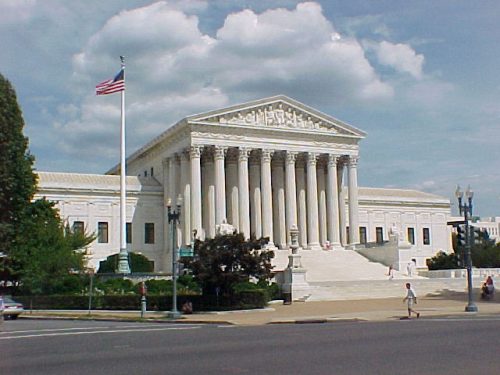

Via Flickr
By Leslie Acevedo
WASHINGTON, DC – The U.S. Supreme Court ruled in favor of a Texas death row prisoner this week in his efforts to use the federal Civil Rights Act to obtain DNA testing to attempt to prove his innocence, according to a Twitter post this week by law school professor Robert Dunham.
The Supreme Court of the United States in a dissenting opinion notes, “A Texas jury found petitioner Rodney Reed guilty of the 1996 murder of Stacey Sites…The Texas Court of Criminal Appeals affirmed Reed’s conviction and death sentence.”
The petitioner, Reed, filed a motion in Texas state court under Texas’s post-conviction DNA sentencing law in 2014, which was later denied noted SCOTUS, adding that Reed requested evidence on certain evidence, “including the belt used to strangle Sites, which Reed contended would help identify the true perpetrator.”
The state trial court denied Reed’s motion, as the items Reed sought out were not preserved through adequate chain of custody, denying Reed’s motion for rehearing, said the Supremes.
The Supreme Court said, “Reed then sued in federal court, asserting that Texas’s post-conviction DNA testing law failed to provide procedural due process.” Reed argued the law’s stringent chain of custody requirement was unconstitutional.
Although the District Court dismissed Reed’s complaint on the basis the motion was filed too late, the “Fifth Circuit held that the limitations period began to run when the Texas trial court denied Reed’s motion, not when the Texas Court of Criminal Appeals denied rehearing,” the court wrote.
Dunham, via Twitter, noted in a dissenting opinion, “6-3 decision by Justice Kavanaugh, [Supreme Court of the United States] holds that the federal time clock for challenging a state’s denial of DNA testing begins to run when the state appeal process ends, not when a lower denies testing or before an appeals court rules on a motion for reconsideration.”
Dunham also tweeted, “Justices Thomas and Alito issued separate dissents, with Justice Gorsuch joining the Alito dissent.”